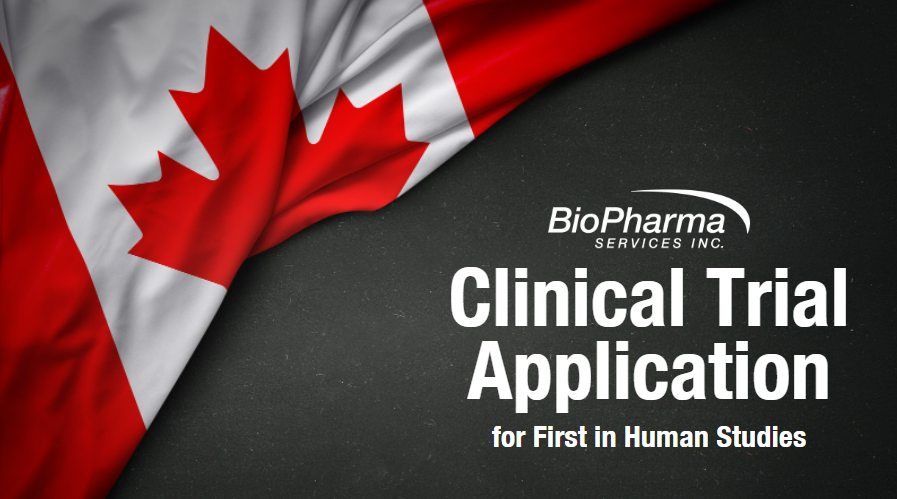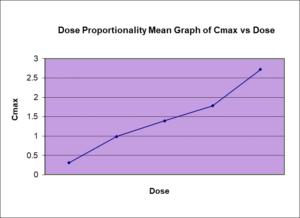Canada: an Alternate Regulatory Route for First in Human Trials

The Pre-IND meeting is a critical meeting for any sponsor wanting to pursue a new drug approval (NDA) in the United States. With the ultimate aim to get the first approval of a drug in the large US market, it may seem logical and advantageous to start the process in the US and complete the Phase 1 first-in-human trials (FIH) in the US.
There are reasons, however, why a sponsor may want to consider delaying the pre-IND meeting and first interaction with the FDA until after the sponsor has collected early first-in-human trials results on the drug in another regulatory jurisdiction such as Canada.
The pre-IND meeting in the US is one of only a few opportunities for a drug development company to get in front of the FDA and elicit feedback (FDA PDF). This is a valuable meeting that can help define the clinical path and expectations as you next meet with the FDA at the End-of-Phase 2 (EOP2) meeting.
The value of this meeting can be increased if the focus of the meeting is shifted from discussing an appropriate FIH study design and safe starting dose based on the preclinical safety data to the expectations of the Phase 2 program based on actual safety data collected during a Single Ascending Dose (SAD) FIH study and a Multiple Ascending Dose (MAD) study.
The Clinical Trial Approval (CTA) Process
Canada uses a Clinical Trial Approval (CTA) process to approve individual studies. Although the data required for the Clinical Trial Application is essentially the same as what is required for the IND to conduct the FIH study (if you have what you need for an IND, then you probably have what you need for the CTA), there are some important differences.
For Phase 1 clinical trial studies, generally two modules are required to be completed for the Clinical Trial Application. Module 1 contains the administrative HC3011 form, the protocol, investigator brochure and the ICF. Unlike for an IND where the finalized preclinical reports need to be submitted, for a Canadian Clinical Trial Application, it is sufficient to provide a summary of the preclinical studies in the IB. This can provide some important time-saving in getting the study submitted and approved.
Module 2 contains the quality (chemistry and manufacturing) information about the drug product(s) to be used in the proposed study. Generally, Module 3 (additional supporting quality information) is not required for SAD/FIH and multiple ascending dose study. Another important consideration is that the protocol is assessed, not the proposed indication or clinical development plans.
| Types Of Clinical Trials | CTA Required? |
| Clinical trials in Phases 1 through 3 of development | Yes |
| Comparative bioavailability trials | Yes |
|
Clinical trials involving marketed drugs, where the proposed trial is outside the parameters of the authorized NOC or DIN application, e.g., one or more of the following is different:
|
Yes |
| Clinical trials in Canada with products that have received a Notice of Compliance with Conditions (NOC/c) | Yes |
| Clinical trials involving marketed drugs where the investigation is to be conducted within the parameters of the authorized NOC or DIN application (Phase 4 clinical trials) | No |
Canada is an ICH member (International Council for Harmonization of Technical Requirements for Pharmaceuticals for Human Use). The studies are conducted under ICH GCP standards. The FDA accepts studies completed in Canada and regularly inspects Phase 1 sites in Canada. The results for Phase 1 studies are incorporated into the final FDA-approved label (SAD, MAD and HAP studies).
As a strategy, some US companies choose to complete their Phase 1 studies ex-USA (List Results – ClinicalTrials.gov). Submitting in Canada allows for a low-risk regulatory strategy while getting good feedback from the Canadian regulator.
The IND required information is easily formatted to fit the Clinical Trial Application requirements (Clinical Trial Applications (CTAs) – Canada.ca). The CTA is submitted electronically. Upon receipt of the CTA, the screening reviewer will ensure that it is complete and that all required documents are included in the application. Upon successful screening, the CTA is accepted, and an acknowledgement letter is sent stating that the review will be completed within 30 calendar days from the day that Health Canada has accepted the CTA as complete.
During the review process, the clinical and quality modules are reviewed by their respective reviewers. If, during review, questions arise, the clinical and/or quality questions may be sent in the form of a “Request for Information” email. Generally, the sponsor is given two calendar days to respond to the questions, although the reviewer may grant some additional time if the response is requested on a weekend or the sponsor requests more time.
If Health Canada is satisfied with the Clinical Trial Application and, if applicable, any requests for information, then the sponsor can expect a No Objection letter (NOL) within the 30 calendar day time frame.
On occasion, additional information is requested. It is not unusual that there may even be an opportunity to communicate with the reviewer directly to help expedite the appropriate response. On some occasions due to the nature of the drug, the preclinical data provided, the safety profile or because of missing data, Health Canada may not feel the study can be approved.
Generally, Health Canada will inform the sponsor that the Clinical Trial Application is not approvable and allows the sponsor to withdraw the application without prejudice. This allows the sponsor more time to then address the issues that were raised by the review. The application can be resubmitted when the sponsor feels they have addressed the identified issues. Importantly, Canada does not have the equivalent of a “clinical hold” and by withdrawing the application the sponsor avoids a reportable rejection.
How BioPharma Can Assist With Your Next Clinical Trial Application (CTA)
BioPharma services is able to put the Clinical Trial Application (CTA) together, submit and help interact and provide guidance to the sponsor on any requests from Health Canada. Our team’s decades of experience in submitting CTAs will help to increase the chance of a successful application. Our clinical pharmacology unit can execute the study, while our Clinical Pharmacology, Pharmacokinetic, Statistical, Data Management and Medical Writing groups help with the design and analysis of the study.
Find out why BioPharma might be the right partner for you! Learn more about BioPharma Services and the wide array of bioanalytical services we provide.
BioPharma Services, Inc., a Think Research Corporation and clinical trial services company, is a full-service Contract Clinical Research Organization (CRO) based in Toronto, Canada, specializing in Phase 1 clinical trials 1/2a and Bioequivalence clinical trials for international pharmaceutical companies worldwide. BioPharma has clinical facilities both in the USA and Canada with access to healthy volunteers and special populations.



